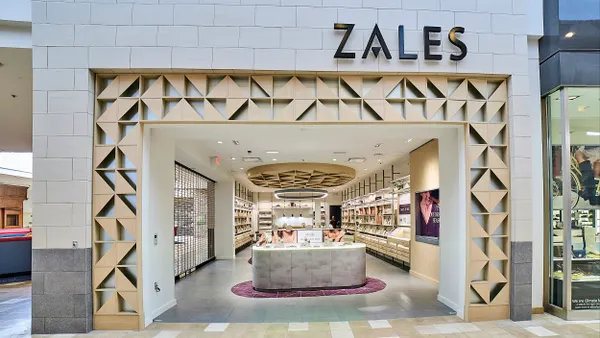Dive Brief:
-
In a letter to shareholders emailed Thursday, Alibaba Group Holding CEO Daniel Zhang said that the company is planning to integrate physical stores into its operations in an effort to overcome the "tremendous challenges" inherent in pure-play e-commerce, Bloomberg reports.
-
According to Zhang, China’s largest e-commerce firm is taking steps to upgrade its retail businesses and targeting efficiency gains across product manufacturing, distribution and service, teaming with Suning Commerce Group (in which it is a stakeholder) and Intime Retail Group to combine its online efforts with brick-and-mortar sales.
-
Alibaba is also targeting new markets: After saturating e-commerce in urban areas of China, it moved into more rural areas and overseas, and as the Chinese economy has slowed, it has also expanded farther into Asia, spending $1 billion for a controlling stake in Singapore-based e-commerce startup Lazada Group, its biggest foreign investment so far.
Dive Insight:
Zhang’s argument that e-commerce must be integrated with physical stores may come as a bit of a shock, considering that China’s consumers are widely seen as more amenable to shopping online than consumers in the U.S., where 90% of sales still happen in brick and mortar.
That attitude is no surprise to many observers stateside, however. Nick Egelanian, president of retail development consultants SiteWorks International, remains doubtful of brute-force e-commerce efforts like Wal-Mart's $3.3 billion acquisition of e-commerce upstart Jet, which has yet to turn a profit. And in a report last year titled "The Death of PurePlay Retail," business intelligence firm L2 argued that, ultimately, there is no such thing as “pure-play e-commerce” because successful e-retailers eventually open physical stores, because there’s little that is analogous online to the potential of the walk-in traffic that helps boost physical store sales.
Amazon is now moving assertively into physical retail, and Alibaba appears to be taking the same tack. In fact, many e-commerce retailers may be blithely unaware of some more subtle advantages that brick-and-mortar retailers enjoy. It’s related to that “touch and feel,” but also has to do with emotional reactions we humans have in a physical environment, web psychologist Liraz Margalit of digital “customer experience” solutions startup Clicktale, told Retail Dive last year.
Much less surprising in Zhang's letter is his stated ambitions for Alibaba's cloud computing business, a highly lucrative venture that hosts 35% of websites in China and is expected to be the number one website-hosting company in Japan in two years. “Cloud computing and big data will become ubiquitous,” Zhang writes. “Data has already become the new ‘natural resource’ that is as vital as oil and electricity. Cloud computing is the new ‘engine’ powering commercial operations.”














